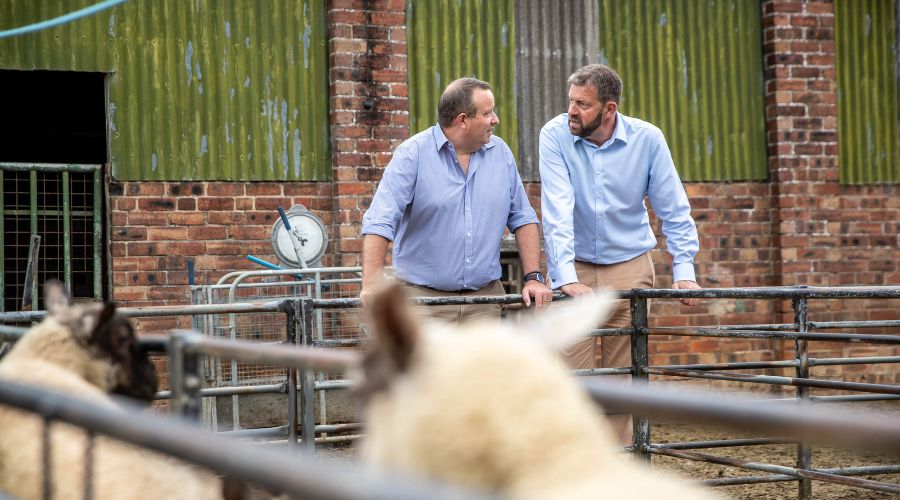Livestock farmers in less favoured areas to see profits cut in half with new delinked payments
9th December 2024
The recent Budget announcements sent shockwaves through many rural businesses across the UK, with the latest data showing that the drastic reduction of the Basic Payment Scheme will have the biggest impact on farmers in less favoured areas.

Defra will apply a 76% reduction to the first £30,000 or less of a BPS payment, and a 100% reduction to anything above this.
For 2025, the top 4% of recipients will receive no more than £8,000. However, for most farming businesses £7,200 will be the highest value direct payment they will receive next year.
Now called delinked payments, the 2023 scheme year was the last year of BPS. Based on each farming business’s average of the 2020-22 BPS payment, the delinked payments started in 2024, and will progressively reduce over 2025/26, ending completely in 2027.
All farms will be negatively impacted’
Agri-consultancy team at Knight Frank has compared average profit and loss figures from the Farm Business Survey 2022 and has updated the figures to show the replacement delinked payment income in 2025.
The team looked at four English farm types, cereals, LFA grazing livestock, lowland grazing livestock, and mixed farms and compared income from: griculture, agri-environmental scheme, diversifications as well as BPS or delinked payments.
Simon Britton, head of agri-consultancy at Knight Frank, said: “LFA livestock farms are set to be harder hit due to their historically higher proportion of income from BPS in comparison to other farm types, resulting in them now losing 45% of their bottom-line profit with the new subsidy reduction plans.
“Although not quite as much as the LFA farms, all the farm types that we have examined will be negatively impacted by the sharp drop in payments. Cereal farmers can expect a 24% drop in profit, lowland livestock farms 26%, and mixed farms 34%.
“Clearly, to ensure these farming businesses remain sustainable and future-proof, there should be an urgency to fill the gaps in income, and more importantly, they should take this opportunity to review their business and understand its cost base in order to maximise profitability.
“The government announced that the rapid reduction in direct payments was a means to open up funding for schemes that have increased environmental or sustainability attachments, yet we’ve heard from Defra that the Countryside Stewardship Higher Tier scheme will only offer extensions or mirror agreements, some of which date back to 2005, leaving businesses with limited opportunities to enter new schemes.”
Mr Britton added that there needs to be more clarity on how farming businesses, especially those in the uplands, are expected to survive if the drop in BPS and the roll-out of new schemes are not aligned.
‘It’s vital that businesses are supported’
LFA was established in 1975 to provide support to hill farming areas where the geology, altitude and climate was deemed to put these farmers at a disadvantage compared to lowland farmers.
In 2022, of all farm types, LFA farms had the highest proportion of annual income from BPS at 62% with lowland livestock farms 47%, mixed farms 44%, and cereal farms 30%.
According to Knight Frank’s data, assuming other streams of income remain the same, the average English LFA livestock farm profit will reduce from £42,881 in 2022 to £23,584 in 2025.
While not seeing the same levels of diminishing overall profit, the average English cereal farm received £35,868 of BPS in 2022 and will now receive the maximum of £7,200 in 2025, so in real terms losing the most.
Henry Clemons, associate specialising in grant funding at Knight Frank, said: “These figures are not to be ignored. For the long-term sustainability of the industry, it’s vital that businesses are supported in the transition away from direct payments and are introduced to specific grant systems that work for the area they are based in, the farm type they are on, and its potential for growth.
“In order for us to support clients to do this, we need the government to be more forthcoming with schemes that are well thought out and designed to assist farming business to improve long-term financial and environmental sustainability.”
Read more farming business news.



